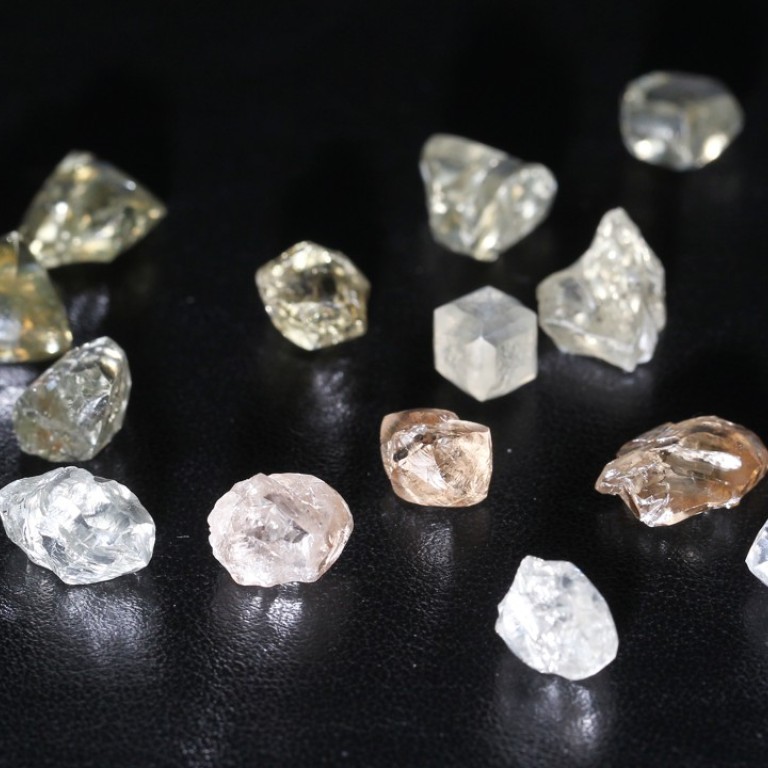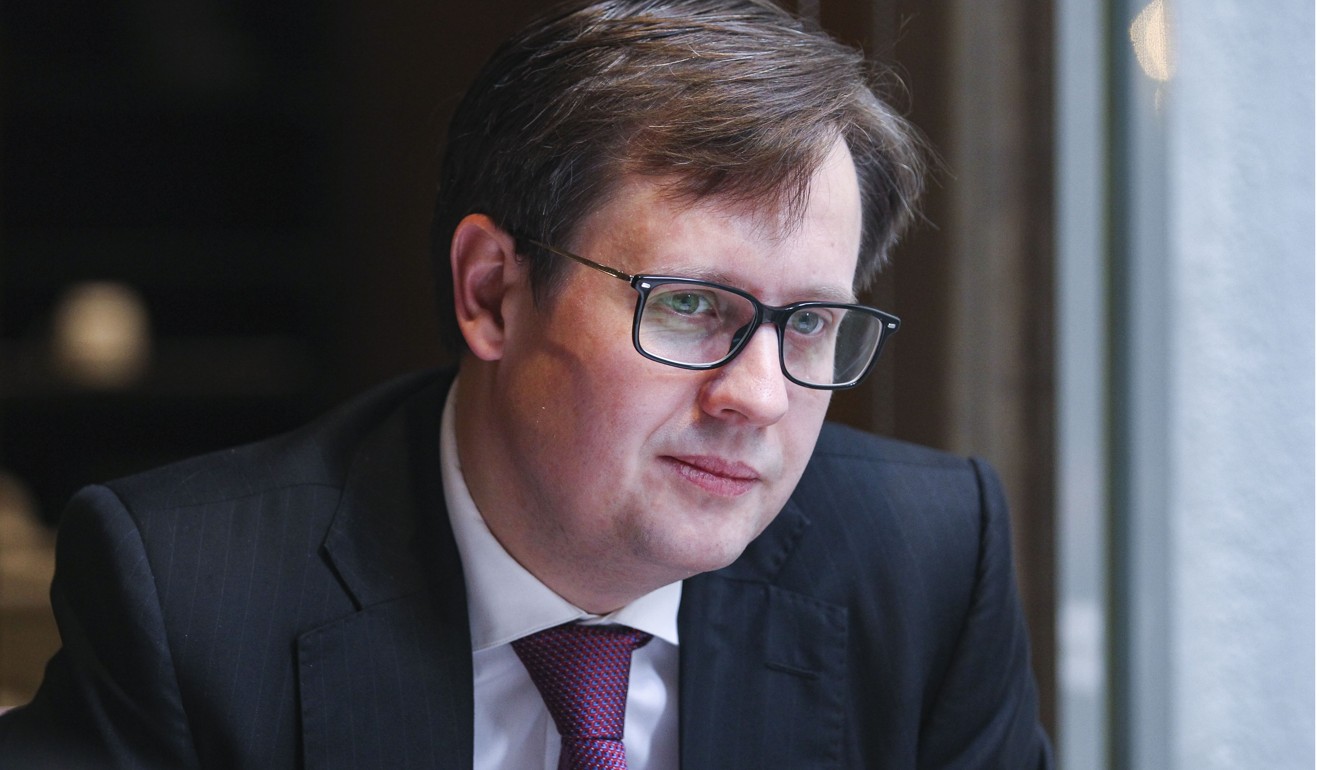
Will Russian diamond miner Alrosa’s Chinese clients take up its offer to trade in roubles? Only time will tell
The state-backed diamond mining company denies move was driven by US sanctions, but says long-term benefits include lower transaction costs and faster deliveries
Alrosa, the world’s largest producer of rough diamonds, wants to expand a pilot to trade with its Chinese and Hong Kong customers in roubles instead of US dollars, hoping to lower transaction costs in the long run and quicken deliveries, but the company’s marketing chief admits that it could be an uphill task.
The move comes as the Russian government last month said that it was in favour of bilateral trade with countries in their national currencies in a bid to reduce the role of the US dollar and the impact of US sanctions on its economy.
“It is hard to start, but we hope that with increasing volume, we will reduce the transaction costs,” Evgeny Agureev, director of sales at Alrosa, said in an interview with the South China Morning Post on the sidelines of the Hong Kong Jewellery & Gem Fair.
“My expectation is that, [if we] have two to three long-term contract clients working with us on rouble transactions it would deliver very good results.”
Russian nickel miner Norilsk Nickel has also been exploring settling payments in roubles with foreign customers, although a spokeswoman told the Post no such transaction has been completed so far.
Spokeswomen of both Alrosa and Norilsk insisted that both firms were offering the new payment alternative after customers said they were interested in such an alternative when asked if it was driven by the Kremlin’s desire to reduce the use of the US currency in Russian trade amid the sanctions.
“We are in the [sanctions] list of the largest companies in Russia but there were no sanctions applied to us,” the Alrosa spokeswoman said. “We have kept our operations with the US and hosted [diamond] auctions in New York this year.
“We are publicly traded … the list has absolutely zero influence on our strategy.”

As yuan or Hong Kong dollar-to-rouble conversion transactions are small in volume relative to those in US dollars, the transaction cost in terms of the conversion spread is higher for rouble deals.
The spread or the difference between ask and bid prices for a Hong Kong buyer if they pay in roubles is 0.08 per cent of the transaction value, 15.5 times the current cost of settling in US dollars, according to foreign currency portal oanda.com. This rises to 0.14 per cent for the yuan-rouble, double the cost if they settle in US dollar.
Jasper Lo Cho-yan, a director at Tung Shing Futures, said that while the transaction cost difference for Hong Kong buyers will increase if they pay in roubles, this could potentially be offset by foreign currency gains if the rouble depreciates against the Hong Kong dollar.
“There is greater foreign exchange risk if they choose to deal in roubles, which they can try to hedge by purchasing roubles as soon as they sign the contract,” he said.
The rouble has been trading in recent days at near 30-month lows.
Lo said that Alrosa’s rouble payment scheme was likely driven by political considerations as Russia faced sanctions.
Chinese millennials and Gen-Zs fuel demand for diamonds in the world’s No 2 market
Alrosa hopes to compensate this with faster settlement and delivery turnaround times.
The Mirny-based state-backed company, which holds the world’s biggest diamond reserves, said last month its supervisory board – which includes the minister of finance and First Deputy Prime Minister Anton Siluanov – had earlier “instructed” its management to consider the possibility of rough diamond sales in roubles. The gemstones are traditionally dealt in US dollars.
Since then Alrosa has completed a pilot deal of around 10 million roubles (US$150,000) with a Chinese rough diamond polishing company which won a bid in an auction held by the company, Agureev said.
This is an opportunity for our clients to receive their goods much faster and safer
The transaction was conducted through the Shanghai subsidiary of Russia’s second largest bank VTB, in which Chinese and Hong Kong customers can open accounts to transact in roubles with Alrosa.
“This is an opportunity for our clients to receive their goods much faster and safer,” Agureev said. “Transacting in US dollars involves several banks which could take three to five days, and in some cases a week or even up to a month, as some additional compliance [procedures] are required.”
Spokeswomen at Hong Kong-based Chow Tai Fook Jewellery Group and Luk Fook Holdings – two of Alrosa’s largest Chinese customers, declined to comment when asked if they would take up the proposal to deal in roubles instead of US dollars.
“In principle, it will save some time,” the spokeswoman of another Hong Kong client, Chow Sang Sang Holdings International, said. “We are not sure how much costs can be saved. We will consider testing the proposal when more details are available.”
Since January last year, the Trump administration has sanctioned 217 Russian businesspeople, officials, banks and private and state firms on suspected “serious and continued threat to the security” of the US, according to Marshall Billingslea, assistant secretary for terrorist financing at the US Treasury Department.
VTB was subject to US sanctions, according to the US Treasury Department’s list as of mid-August.
World’s largest rough diamond bought by Graff’s ‘King of Diamonds’ for US$53m
Alrosa’s push for sales in roubles comes as US-China trade relations are at a low point after the Trump administration on Tuesday levied another round of tariffs on US$200 billion worth of Chinese goods, which was met by retaliatory tariffs from China.
Alrosa’s sales to China amounted to US$120 million in the year’s first eight months. For the full year, Agureev said it was targeting US$180 million, the same as last year.
Some 70 per cent of its sales were conducted via long-term contracts, and the rest – mainly larger diamonds and much more expensive coloured diamonds – via tenders and auctions.

